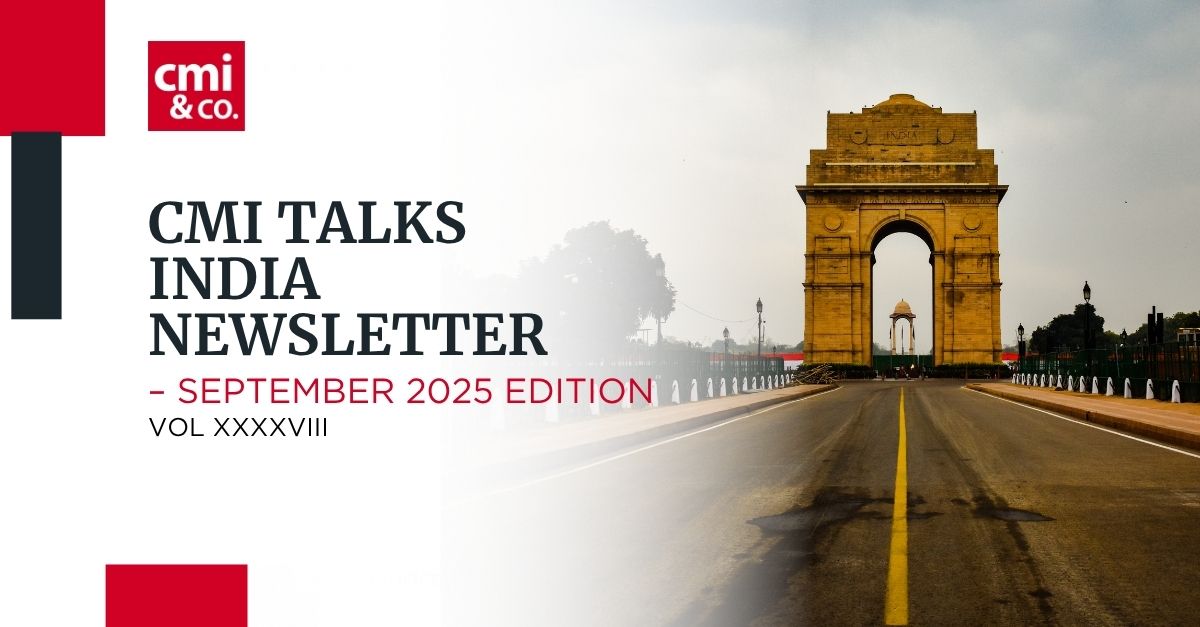Government of India launches Goods and Services Tax Appellate Tribunal (“GSTAT”) to strengthen the institutional framework for indirect tax dispute resolution in the country.
The Union Finance Minister formally launched the GSTAT ON 24.09.2025 to streamline dispute resolution and reinforce trust in India’s indirect tax system. It will provide a uniform, transparent, and reliable platform for the resolution of disputes. The vision for GSTAT is “One Nation, One Forum for Fairness and Certainty”.
Key Takeaways:
- GSTAT is a single statutory appellate body established under the GST laws constituted to hear appeals against orders passed by GST Appellate Authorities.
- The Tribunal will function through a Principal Bench in New Delhi and 31 State Benches across 45 locations in India, thereby ensuring accessibility and nationwide reach.
- Each Bench of the GSTAT will comprise 2 Judicial Members, 1 Technical Member (Centre), and 1 Technical Member (State), ensuring a balanced composition of judicial expertise and technical knowledge from both Central and State administrations.
- GSTAT e-Courts Portal is developed by Goods and Services Tax Network (“GSTN”) which enables to file appeals online, track cases and digital hearings, staggered filing window until 30.06.2026 and comprehensive user support including FAQs and guides available on the GSTAT portal https://efiling.gstat.gov.in/.
- These resources are aimed at ensuring that all stakeholders, including MSMEs and individual taxpayers, can easily access and benefit from the Tribunal’s services.
Securities Exchange Board of India (“SEBI”) amends the Real Estate Investment Trusts (“REIT”) Regulations.
The SEBI vide Notification No. SEBI/LAD-NRO/GN/2025/258 dated 01.09.2025 has introduced The SEBI REIT (Second Amendment) Regulations, 2025 (“Regulations, 2025”) to amend the SEBI REIT Regulations, 2014 (“Regulations, 2014”).
Key Takeaways:
- The definition of “public” under Regulation 2(1)(ze) of Regulations, 2014 has been substituted, clarifying that the sponsor, sponsor group and manager of the REIT shall not be considered as public.
- A new proviso in Regulation 10(18) of Regulations, 2014 shall be inserted stating that the valuation reports under Regulation 21(4) and 21(5) shall be submitted to the trustee simultaneously when filed with stock exchanges.
- Full valuation must now be conducted as of March 31 each year and submitted by the manager to the stock exchange along with annual financial results.
- The valuation will be conducted as of September 30, and instead of a 45-day preparation timeline, the valuation report must be submitted along with the September quarter financial results.
- The Regulations, 2025 shall come into force on the date of their publication in the Official Gazette.
Reserve Bank of India (“RBI”) Issues New Directions on Authentication Mechanisms for Digital Payment Transactions.
The RBI vide Circular No. RBI/2025-26/79 dated 25.09.2025 issued the RBI (Authentication mechanisms for digital payment transactions) Directions, 2025 (“the Directions”) to strengthen security in India’s digital payments ecosystem.
Key Takeaways:
- The Directions shall apply to all Payment System Providers and Payment System Participants (banks and non-banks), all domestic digital payment transactions, unless specifically exempted otherwise.
- All digital payment transactions shall be authenticated by at least two distinct factors which are “something the user has”, “something the user knows” or “something the user is” unless an exemption is specifically allowed.
- For digital transactions other than card present transactions at least one of the factors must be dynamically created or proven i.e., the proof of possession of the factor, being sent as part of the transaction, is unique to that transaction.
- The RBI says that issuers may, in line with their internal risk management policies, identify transactions for evaluation against behavioural / contextual parameters such as transaction location, user behaviour patterns, device attributes, historical transaction profile, etc.
- These directions are not applicable to cross-border digital payment transactions. However, card issuers shall place a mechanism by 01.10.2026 to validate cross-border card not present (“CNP”) transactions and register their Bank Identification Number (“BIN”) with card networks.
- These directions will come into effect from 01.04.2026.
Ministry of Corporate Affairs (“MCA’) expands the scope of fast-track mergers under the Companies Act, 2013
The MCA vide Notification No. G.S.R. 603(E) dated 04.09.2025 notified an amendment to the Companies (Compromises, Arrangements and Amalgamations) Rules, 2016 (“CAA Rules”), widening the classes of companies eligible for fast-track merger/demerger under Section 233 of the Companies Act, 2013.
Key Takeaways:
- In rule 25, the fast-track mergers are now available to two or more unlisted companies which meet the prescribed thresholds of outstanding loans, debentures or deposits.
- A holding company and its subsidiary can avail the fast track merger excluding cases where transferor company is a listed company; Two or more subsidiaries of the same holding company excluding cases where transferor company is a listed company.
- The amendment explicitly excludes cases where the transferor company is listed, preserving stricter controls where public shareholders are involved.
- Merger of the transferor foreign company incorporated outside India being a holding company with the transferee Indian company being its wholly owned subsidiary company incorporated in India referred to in sub-rule (5) of rule 25A.
- They shall come into force on the date of their publication in the Official Gazette.




